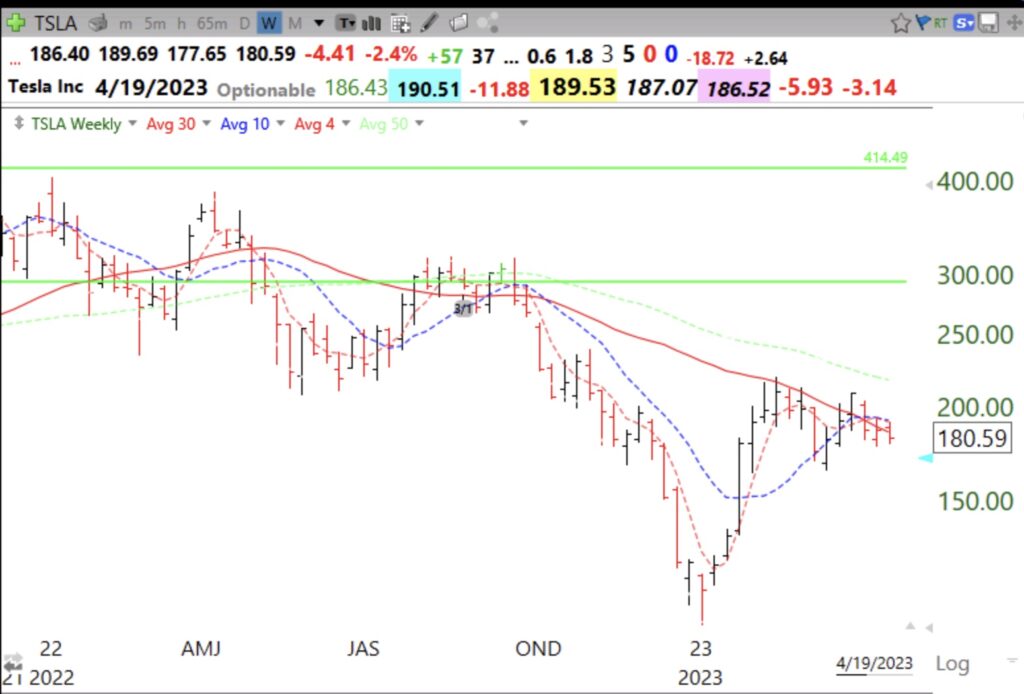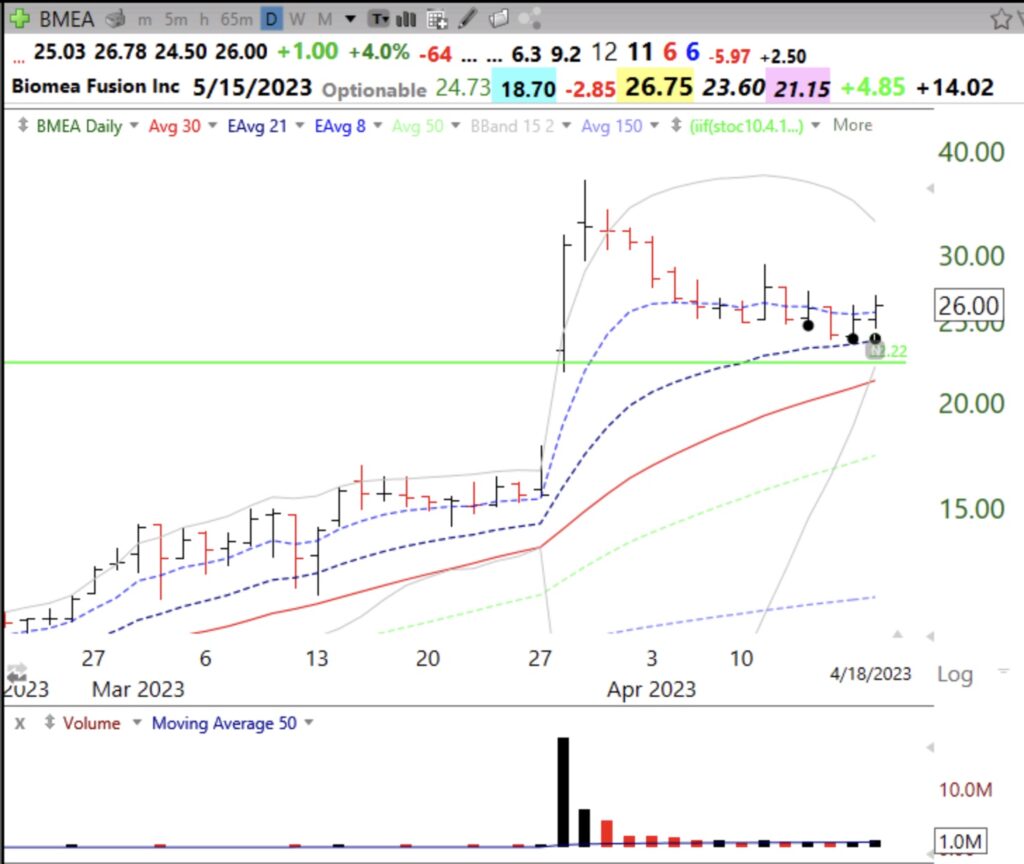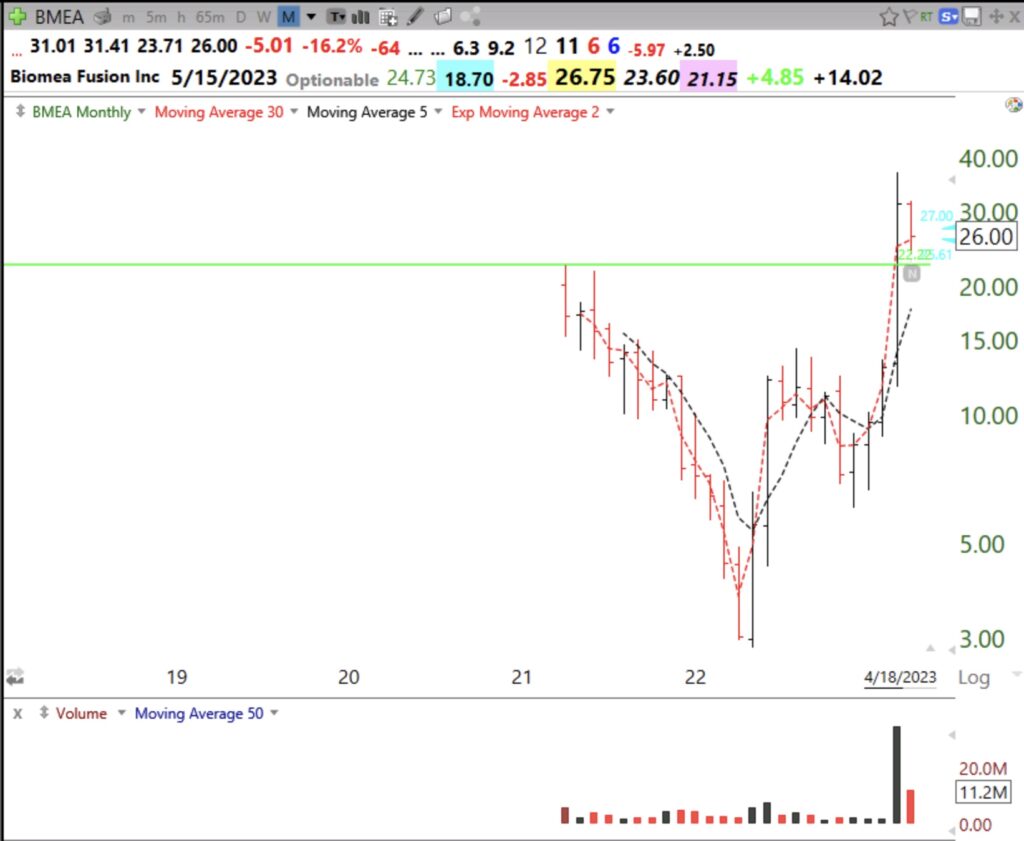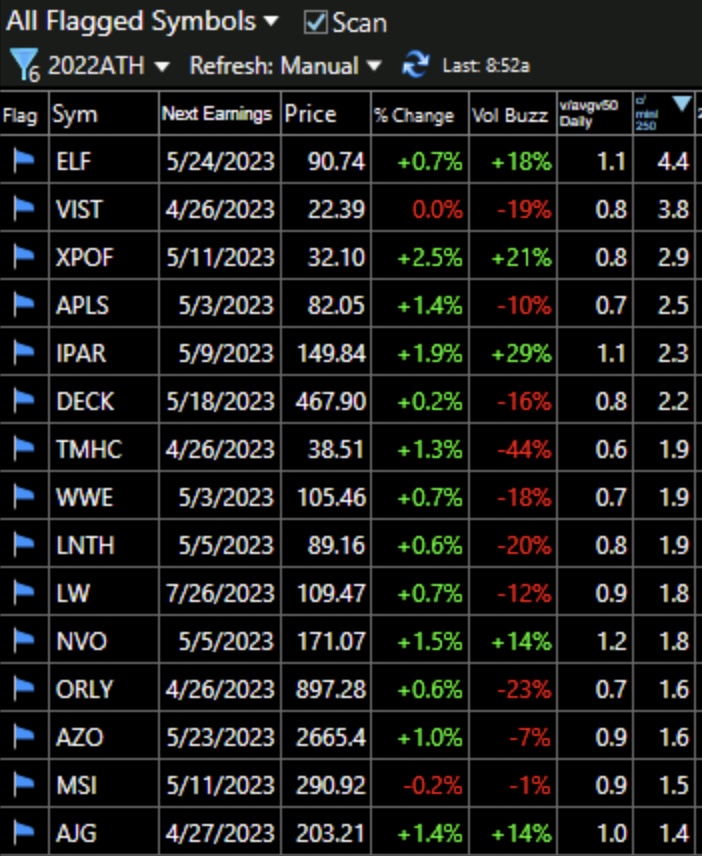Blog Post: Day 22 of $QQQ short term up-trend; 107 US new highs and 77 lows; Biotech, $BMEA, showing promising technical strength, see daily and monthly charts
My TC2000 scan for stocks at a recent ATH that have already doubled and are now bouncing from oversold picked up 3 candidates. One of them, BMEA, had a huge gap up based on promising clinical trial results. Note its recent GLB (green line break-out). This company bears watching, but remember, all biotechs are vulnerable to risk from bad study results. BMEA is also presenting results at a big conference this week. Below are its daily and monthly charts.
With 107 new highs Tuesday, the GMI is back to 6 (of 6). The general market indexes did not reflect this internal strength.



